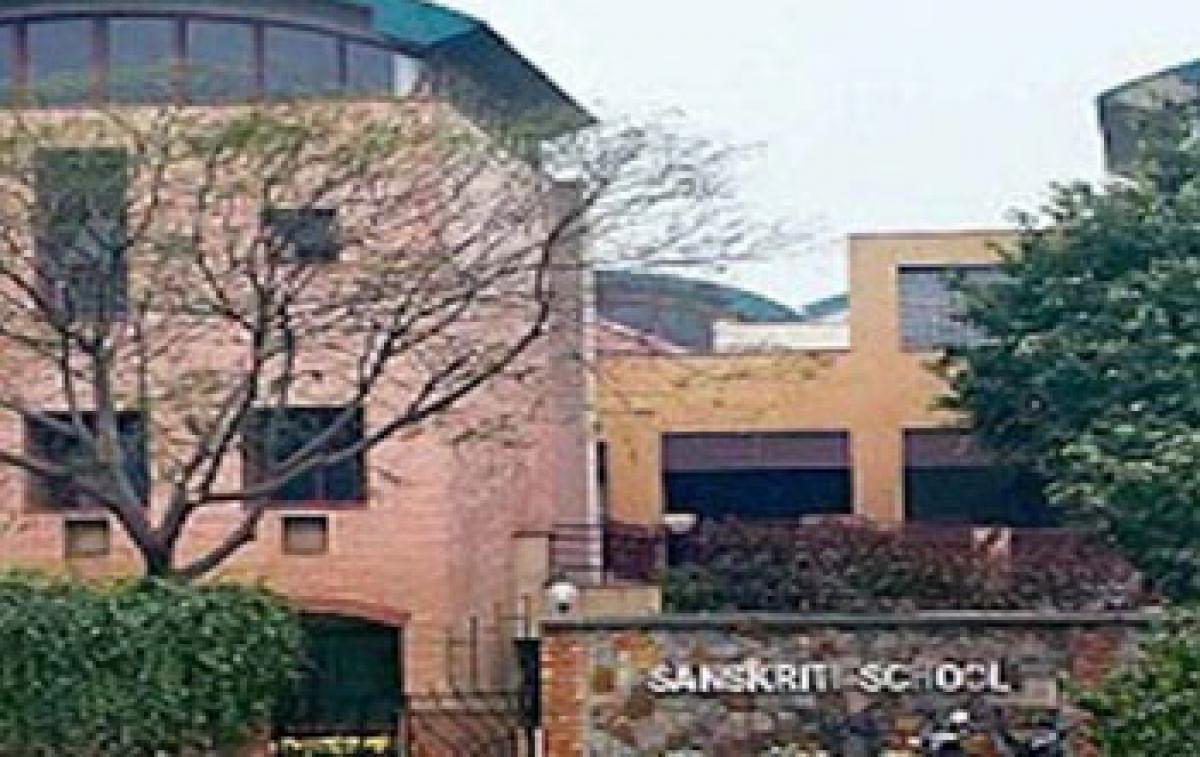Live
- Govt plans to establish offshore Johns Hopkins University Campus in India
- Goa Aces clinch Indian Racing League title
- Study finds how hormone therapy can reshape the skeleton
- High-street fashion players looking at India for manufacturing: Report
- Shreyas Iyer to lead Mumbai as Prithvi Shaw returns for Syed Mushtaq Ali Trophy
- 'Failed to resolve crisis': NPP withdraws support from BJP govt in Manipur
- Chennai: Actress Kasturi Remanded in Custody Until 29th of This Month
- Aaqib Javed likely to become Pakistan's new white-ball head coach
- BJP panel to draft poll charge sheet against AAP govt in Delhi
- Allu Arjun Thanks Fans in Patna, Teases 'Pushpa 2' Release
Just In

The Supreme Court on Monday, for now, declined to pass any order on the central government\'s plea seeking continuation of 60 percent quota of seats in the elite Sanskriti school for the children of group A officers belonging to all India services like IAS, IFS, IPS and other central services.
New Delhi: The Supreme Court on Monday, for now, declined to pass any order on the central government's plea seeking continuation of 60 percent quota of seats in the elite Sanskriti school for the children of group A officers belonging to all India services like IAS, IFS, IPS and other central services.
A bench of Justice Anil R. Dave and Justice Adarsh Kumar Goel appointed senior counsel Kapil Sibal as amicus curiae to assist it as it found that there was no respondent to contest the government's plea for restoration of 60 percent quota for the children of Group A officers that was struck down by Delhi High Court on November 6, 2015.
The bench directed the further hearing of the matter on January 7 when it would consider the government and Sanskriti School's plea for allowing it to continue with 60 percent reservation for admission for the academic year 2016-2017.
As Attorney General Mukul Rohatgi appearing for the central government urged the court to permit the "status quo" allowing the school to continue with the reservation, the court said that it would be hearing the plea for interim relief on January 7.
The Delhi High Court's November 6 order came after it examined the validity of the 60 percent quota of which it had taken suo motu cognizance in 2006.
Quashing the reservation, it had said: "Reserving seats for a particular branch of the Indian services disadvantages children of persons engaged in other branches of the Indian services." The high court had also asked the government to see whether the Sanskriti School could be made a part of the existing Kendriya Vidyalaya Sangathan. "The state cannot provide funds to any private individual to establish a school for an elite segment of society," it had remarked.
On Monday, Rohtagi, telling the apex court that group A officers of All India Services formed a class for themselves, noted that it was a misnomer to call them elite, as by virtue of their being repeatedly transferred, what is sought to be projected as an elite status has become non-elite.
Saying that to convert Sanskriti School - located in the national capital's diplomatic enclave - into a Kendriya Vidyalaya, as directed by the high court would have "far reaching effect", he said that "it was set up for a purpose. It was not set up to grab the land or grab profits". It is a school that is run by the wives of the senior bureaucrats with the wife of the cabinet secretary being its principal, he told the court.
Appearing for the Sanskriti School, senior counsel K.K.Venugopal assailed the high court verdict saying that since the school got land and building free from the government, therefore it was akin to the state.
As Justice Goel observed that Sanskriti School was "100 percent state", he said that it was being run by the wives of the bureaucrats.
"Instead of husbands, it is wives," Justice Goel said, in an indirect reference to the real power behind the school.
The school was allotted land at a premium of Re.1 and rent of Re.1 per annum. The government had also declared that various government agencies and ministries donated Rs.15.94 crore to the managing society for setting up the school.

© 2024 Hyderabad Media House Limited/The Hans India. All rights reserved. Powered by hocalwire.com







